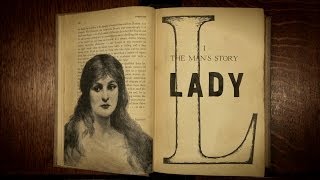(单词翻译:单击)
Mysteries of vernacular: Lady, woman.
通用俗语的谜团:女士,是指女性。
Lady is tied to a number of words that seem at first glance etymologically unrelated.
女士这个词跟好几个乍一看与其语源毫无关系的词语相关。
She traces her roots back to the Old English words hlaf,
她的本源要追溯到古英文的hlaf一词,
which referred to a loaf of bread and is the direct ancestor of our modern word loaf, and daege,
也就是指一条面包,该词还演化成现代英语中loaf和daege,
which meant maid and is the root of our word dairy, the place where the dairymaid works.
后者意为女仆,即为dairy一词的根源,也就是挤奶女仆工作的地方。
Together, hlaf and daege became hlafdige, literally loaf maid, or, more figuratively, kneader of bread.
hlaf和daege合并成为hlafdige,字面意义为面包女仆,而象征性地讲,就是女面包师。
As early as the ninth century, hlafdige was the name for a mistress of servants, or the female head of the household.
早在9世纪,hlafdige就是女管家或者是家中女主人的称呼。

The Old English word for a male head of household was hlafweard, a compound of hlaf, loaf, and weard,
古英语中表达家中男主人的词是hlafweard,由hlaf,即loaf,和weard,即管理者,组成,
which meant keeper and is the word of modern words like ward and warden.
它是现代词语,如ward(监护)和warden(监管人)的根源。
Both hlafweard, the breadwinner, and hlafdige, the bread kneader, came to be titles of respect,
hlafweard(挣面包钱的人)和hlafdige(做面包的人)两词成为了表尊称的头衔,
referring to citizens of higher social standing.
指代有着较高社会地位的市民。
Through a process known as syncopation, both words lost their internal sounds to become lord and lady, respectively.
后又经过(语言学上的)切分音,两词都省去了中间的一些音节,而成为了Lord(大人)和Lady(夫人)。
Though still an expression of courtesy,
虽然仍是有礼貌的称谓,
lady has since moved down the ladder of social standing and is now often used to mean simply a woman.
但lady一词已经从社会地位的阶梯上走下,而现在通常仅仅代指女性。


